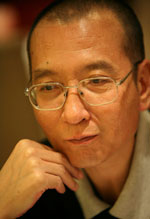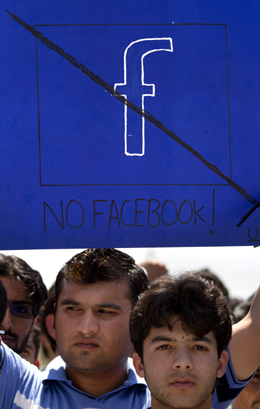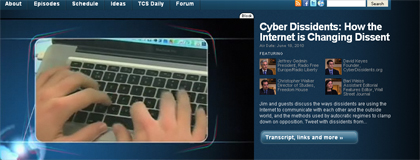China
2010

China seeks to block news of Liu’s Nobel
New York, October 8, 2010–The Committee to Protect Journalists calls on the Chinese government to end its pointless attempts to block the news by blacking out domestic and foreign media coverage of the Norwegian Nobel Committee’s announcement awarding jailed human rights activist Liu Xiaobo the 2010 Nobel Peace Prize. According to foreign news agencies’ reports from…
Internet blotter
The International Telecommunications Union starts its plenipotentiary meeting this week. Some worry that some nations will use their position at the ITU to attempt to grab more control over how the Internet works. RSF covers the Burmese DDOS attacks. I’ve heard some really fascinating detective work on the real origins of these attacks – hope…
Global Voices Advocacy: Great Firewall of China Upgrade?
Oiwan Lam reports widespread disruption for users of Freegate, the popular circumvention software in China: According to the RFA report, users from several provinces across the country have encountered similar problem and they believe that it is due to the upgrade of Great Fire Wall. Apart from the Freegate, when running UltraSurf and FreeU the…
China Media Project – Microblogs are crucial in China
Hu Yong’s writes on the rise of microblogs (like Twitter, which is blocked) on the Chinese Internet. Recently, when a newspaper reporter exposed related-party transactions by a listed company, local police authorities issued a warrant for his arrest. Tens of thousands of microblog posts were sent out about this incident. Users expressed their views and…
China sets prison terms for 3 Uighur Web managers
New York, August 2, 2010—Three Uighur-language website managers were sentenced Friday to prison terms of three to 10 years after being found guilty under broad charges of “endangering state security.” The men had been jailed after ethnic rioting in July 2009 in Urumqi, capital of the far-western, predominantly Muslim, Xinjiang Uighur Autonomous Region.
China sentences Uighur journalist to 15 years
New York, July 26, 2010—The 15-year jail sentence imposed by a Chinese court on Uighur journalist and website manager Gheyrat Niyaz is unjustly harsh and should be overturned immediately, the Committee to Protect Journalists said today. The fact that Niyaz was convicted under sweeping “endangering state security” charges is an indicator of how far the government will go…
Uighur journalist goes on trial in China a year after unrest
New York, July 22, 2010—The Committee to Protect Journalists calls on the Chinese government to dismiss charges against Gheyret Niyaz, a Uighur journalist and website manager, and release him from prison. According to the Uyghur American Association (UAA), Niyazi will be tried in Urumqi, the capital of China’s far-western Xinjiang Uighur Autonomous Region on July 28.

Global Media Forum cites risks of environmental reporting
He’s young, unemployed and carries himself with the innocence of a man who hasn’t spent much time outside his own village. But Egyptian blogger Tamer Mabrouk is the real deal. Appearing at an international media conference in Bonn, Mabrouk’s description of chemical dumping into a brackish lagoon on the northern Nile Delta near the Mediterranean Sea…

In Pakistan, a censor’s hand in Facebook, Twitter woes?
Last week, users of Facebook and Twitter in Pakistan began reporting a strange security problem. When they visited those sites, they found they were logged in–but with the accounts and privileges of complete strangers. Private Facebook information and Twitter direct messages belonging to other users were viewable, and the surprised Pakistani users had complete control…

As dissidents move online, governments fight back
Social media and cyber dissidents have exerted a increasing influence on global politics over the last few years—Twitter, for instance, was widely utilized by protesters and journalists during Iran’s 2009 post-election Green Movement, and China has been locked in conflict with Google over allegations of censorship and hacking. “Ideas in Action” with Jim Glassman, a half-hour weekly show on…